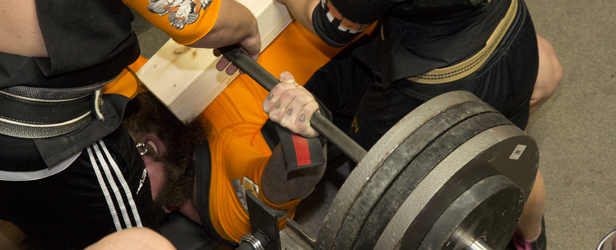
elitefts™ Sunday Edition
There are many things that drive me nuts, and these diminish with each passing year, but there are still a couple that I just can't let go of. One of these is the use—or should I say improper use—of the word "Intensity" in programing.
Last week I sent out another tweet as part of my How Do You Know Your Internet Guru is FOS series. This time, the question asked to define intensity as it relates to programing. Little did I know that there was actually an article just posted titled "Ask the Experts: What is Intensity?" This was tweeted to me the following day, and the title interested me enough to read the article. I was also curious as to how many of the experts would know the real definition as it relates to training.
Well, out of 11 experts...one got it right. Perhaps I should say one and a half because there was one other person who kind of got it, but not really.
By the way, intensity (in strength and sports programing) is defined as the degree of effort when compared to maximum capacity. This is a math equation. I'm sure you have all heard and read Louie saying that training is mathematics, bio-mechanics, and physics. Well, this is part of the basic mathematics of strength and conditioning programing. This is also a "basic" training concept that should be as well known as a set, rep, and exercise. Yes, I do understand that bodybuilders define this as intensity of effort, but they are still wrong. I let them slide because most of them have never studied the programing of strength, sport, and conditioning.
While I summarized the definition it is not mine but how it has been used for decades in sports science.
The key point here is that it is physically impossible to train at high volumes with high intensity. This physically CANNOT be done. To say so only demonstrates a complete lack of knowledge in the programing process. You simply can't do 90% of your one-rep max (high intensity) for five sets of 20 (high volume). If you can, then the intensity really wasn't 90%.
I, for one, want to help teach others to become the next generation of experts, and to do so we need to give them the right tools and educate them on how to become the best they can be. I do not agree with creating sheep who will just follow what you tell them to do. We need to create students of this craft—future innovators that will help take strength and sports training to the next level. This isn't going to happen when they are not even being taught the basic terms correctly.
elitefts™ is in the strength education business that happens to sell products—this is what allows us to provide the educational content for free. It has become very apparent that we need to do a much better job on the educational side because there is more BS circulating today than there has been in the entire history of sports and training. It is also clear to us that we need to take a few steps back and begin working on more articles that cover the absolute basics—the basis—of training. If the experts are misinformed, one can only imagine how faulty and convoluted the information at the beginner and intermediate levels of strength training and education has become.
Since this falls in line with this topic, I will rehash how I determine who I will listen to when it comes to training advice. I look for these things:
1. Who did they learn from? Where did they go to school, what did they study, what have they read, who were their mentors, who did they intern with, what is their base of education?
2. Who did they train with and/or under? Who was their coach, who were their training partners, which teams were they a part of?
3. What have they done? What are their lifts, what have they competed in, at what level did they compete at? Do they have in the trenches and under the bar experience, have t hey faced or over come adversity in the gym or did it all come easy, are they even in shape and do they train?
4. Who have they trained and have made better than themselves? Who have they coached, what clients have they really worked with, are their testimonials real people or buddies doing them a favor, have they ever really trained a client? When people say they have trained thousands of people, do you have any idea how many years it would take for this to really happen? If it really is thousands then there is a very high attrition rate...why?
Keep in mind that every coach and every trainer is not created equal, and just because they may be lacking in some of these sectors doesn't mean they totally suck. I know some great individuals who excel at just one of these sectors and can offer great advice to help you go a long way. The reason for the questions is to help you get past all the bullshit and see the coach/trainer for what he/she really is...not who they pretend to be.









